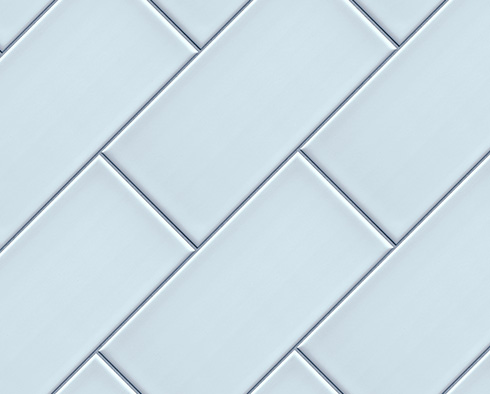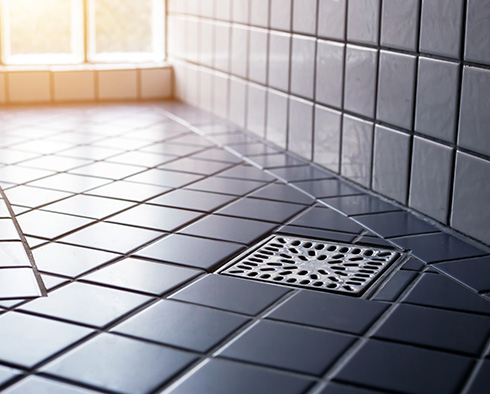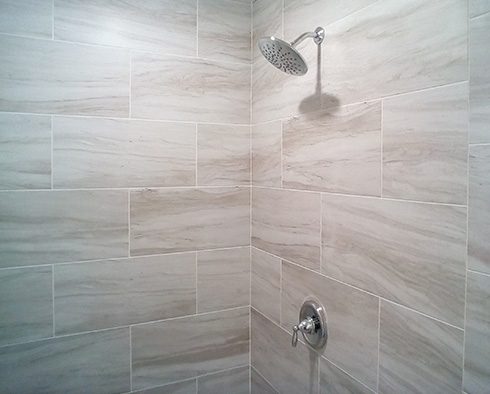Is Grout Mold Dangerous?
November 21, 2023
Yes, mold can be harmful! Mold can be problematic to anyone because it may be toxic, but it is especially risky for certain individuals taking medications that weaken their immune systems or anyone who has recently undergone cancer treatment or surgical procedures. Mold needs to be taken seriously.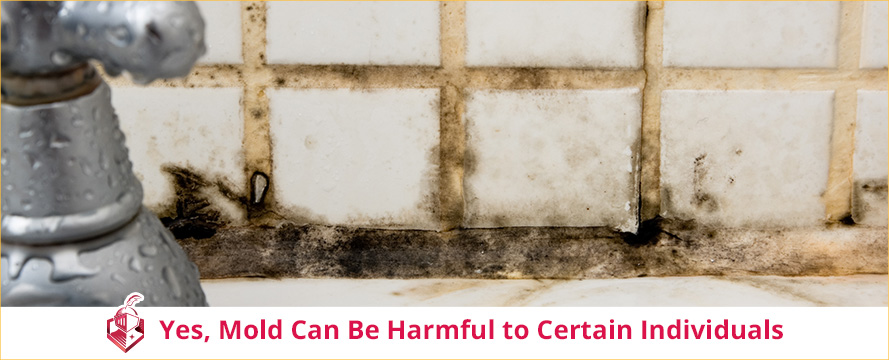
Mold on your grout and tile will always be an unsightly fungus that grows when too much moisture is present in an environment. And while it could be toxic to some people, there are steps you can take to prevent its growth.
In this article, we'll tell you how to avoid potential health issues by detecting and eliminating mold in your home so that it doesn't become a problem for your hard surfaces.
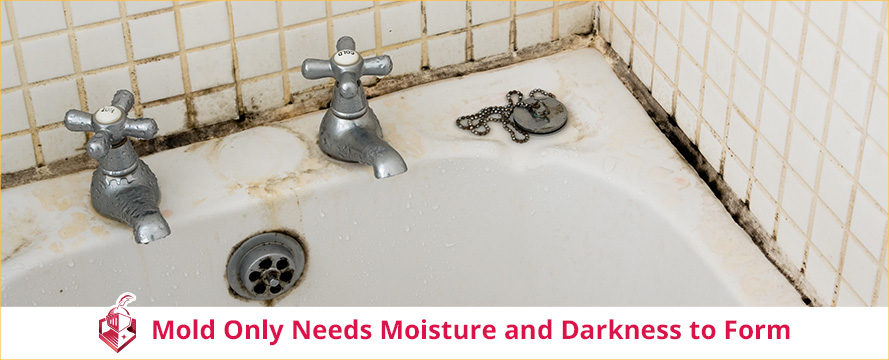
How Mold Forms
Mold isn't picky. It only needs moisture and darkness to form. Many places in your home are already the perfect breeding ground.In addition to your grout and tile, it can be found on faucets, in your basement, beneath sinks, under carpeting, and around swimming pools, saunas, and hot tubs.
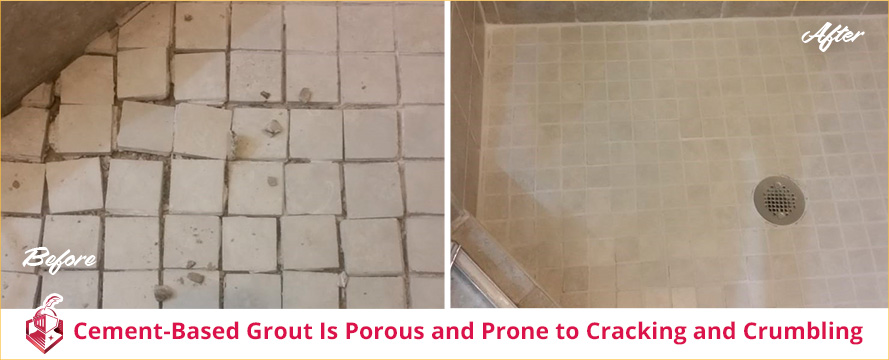
If you have cement-based grout, mold and mildew can become embedded. This type of grout is highly porous and prone to cracking when it isn't sealed, which creates an attractive environment for fungus to thrive in.
Even if you have epoxy grout in your home, which is resistant to moisture and cracking, mold can still settle on the surface. This often occurs in bathrooms and kitchens where there is a lot of steam, humidity, moisture, and soap scum.
One thing you can be sure of, if you have mold in one part of your home, you probably have it elsewhere. That's because mold spores, small reproductive fungal cells, float through the air in search of places to grow.
Types of Mold
It would be impossible to list and discuss every type of mold, but a few are so prevalent in and around our homes that they deserve special mention.Stachybotrys chartarum, which we know better as "black mold," is one of the most common species in your home. It often grows on surfaces with a high cellulose content, such as paper, fiberboard (compressed wood and plant fibers used as building material), drywall, and many others.
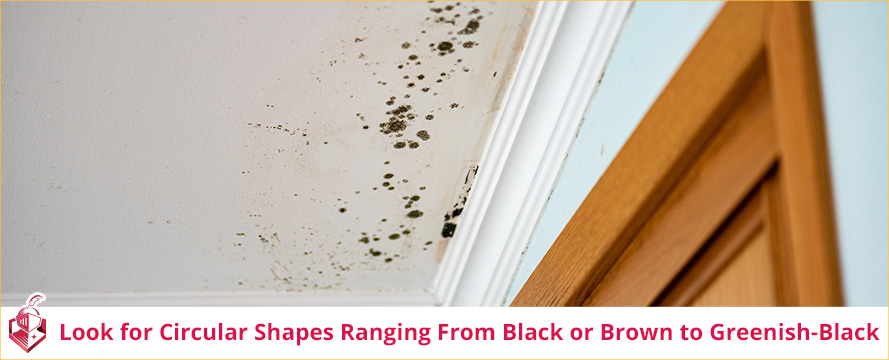
Identifying it isn't difficult. Look for circular shapes ranging from black or brown to greenish-black. It may even have an orange tint or small white spots throughout.
Black mold has a fuzzy appearance and produces an earthy or musty/pungent aroma, similar to rotting vegetation.
According to the CDC, other common household molds include Cladosporium, Penicillium, and Aspergillus.
Like other types of fungus, these thrive in moisture and humidity and love dark places. They don't pose the same risk as black mold, but people with weak immune systems, as always, can be at risk.
Another type of mold people worry about is "pink mold," which is a slimy pink-colored film often found on shower walls. This really isn't mold at all. It's bacteria that builds up from soap scum and produces a pink or red pigment in your shower. It isn't harmful to most people but is unsightly and creates a surface that allows other molds to form and cling to it.
Health Issues Related to Mold
Basic Facts About Mold and Dampness by the CDC emphasizes that mold is widespread in many homes. The same article refers to a study by the Institute of Medicine that finds "sufficient evidence to link indoor exposure to mold with upper respiratory tract symptoms, cough, and wheezing in otherwise healthy people."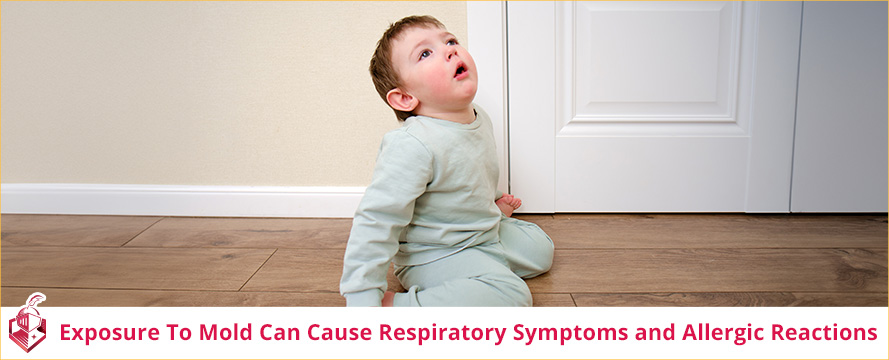
These studies indicate that mold exposure can also cause allergic reactions, including runny nose, watery eyes, trouble with breathing, sniffling, itching, muscle cramps, and even headaches or memory loss.
One of the biggest dangers of fungal growth is the mycotoxins they contain. Black mold is one of the more toxic mycotoxins. It can cause severe illness and even death.
Because they are low molecular weight molecules, they float freely through the air or cling to dust particles and other debris, which is how we get them into our systems.
Those with pre-existing medical conditions are more prone to the dangers. This includes people undergoing treatment for cancer, those who've had a transplant, or people taking medications that weaken the immune system.
Since exposure can occur days to weeks after you've been in contact with spores, a guest in your home could be affected long-term by mold in your house.
How To Get Rid of Mold in your Grout and Keep It Away
So what's the good news? How do you get rid of mold and keep it from coming back?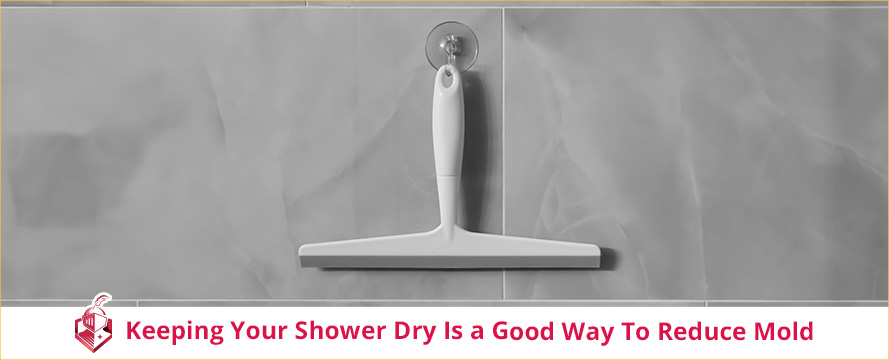
You probably don't take the time to dry the walls of your shower when you're finished, but that's one of the things you can do to help keep it away.
The truth is the more you clean and sanitize your home, the less likely you'll encounter mold. Even with a thorough cleaning, however, it isn't easy to remove once detected. That's why preventive cleaning is so important.
Wiping up spills, using a fan to dry wet areas, and checking under places you might not think to look can also help. Regularly inspect beneath your sinks and around faucets and joints for any leakage that can cause moisture buildup or standing water.
The CDC recommends using commercial cleaning products, a bleach solution, or even soap and water clean mold away, but be careful. Bleach and many commercial products can be hard on grout and tiles, and soap and water aren't always effective enough to eliminate all traces of spores. This is a problem because If they aren't eliminated, they will reproduce, and the infestation will persist.
Everyday cleaning methods and little "life hacks" like opening a window to allow the humidity to disperse can reduce moisture and make your home less appealing to mold.
You can also use an air purifier to reduce bacteria and fungal spores in the air.
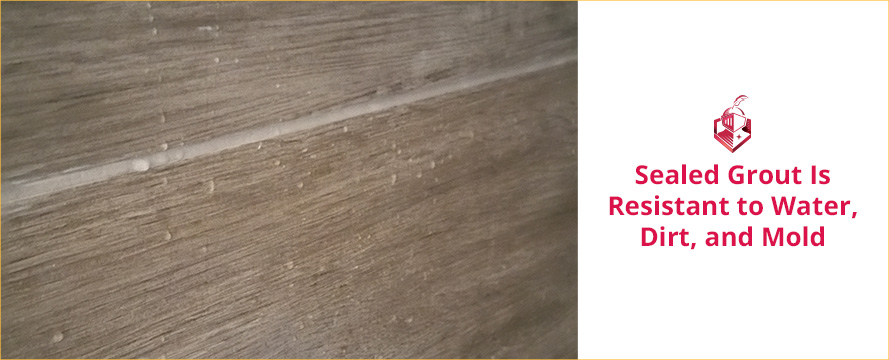
While there is a lot you can do to be proactive, sometimes the problem is already too extensive. In this case, professional help is your best option.
How Sir Grout Eliminates Mold Issues
If you suspect mold growth in your home, Sir Grout is your solution!We can visit your home and inspect it for mold. If we find any, we will eliminate it using a portable vapor steamer that operates at 275 degrees. This is hot enough to kill fungal growth without causing harm to your showers, tiles, or other surfaces.
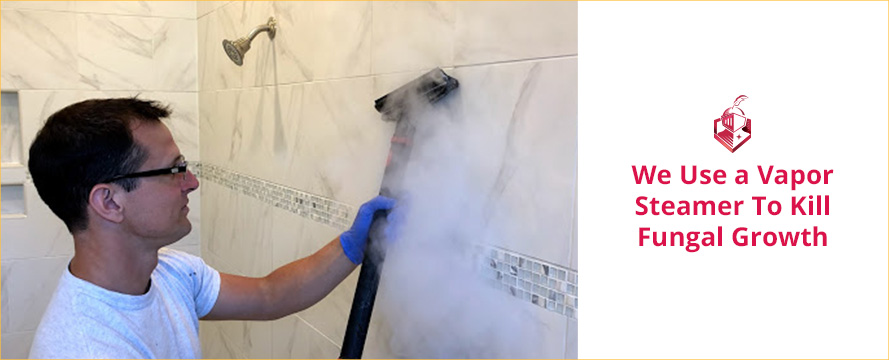
What's great about this approach is that it's better than regular cleaning. This method allows us to completely kill all mildew, spores, and other bacteria.
We can also look at your tiles and grout lines to ensure they are not cracking and are correctly sealed, which helps make them resistant to mold infestation.
If we find a problem, we can repair, replace, and seal your grout to protect it.
Don't put your family's health at risk. Call Sir Grout today!


